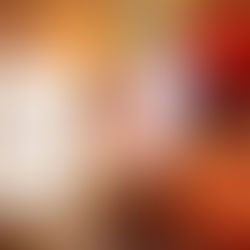How to embroider the eyes for your toy
Toy’s eyes can be made using many techniques. We have already discussed two of them: polymer clay and crocheting.
This article dwells upon the embroidering the eyes for your toy.
The pros and cons are almost the same as those of crocheted eyes.
+ This type of eyes is very safe.
+ They are easy to make in most cases.
+ The materials are always available.
+ This type of eyes offers a crafter a great variety of shapes and sizes and can be used even with the tiniest toys.
+ Many techniques can be used depending on a crafter’s skills (French know, satin stitch, back stitch, etc.).
- This way of making the eyes may require some embroidery skills and be time-consuming.
- Some crafters think they are not as attractive as safety eyes or eyes made of polymer clay.
Before you start embroidering eyes for your toys
1. Make sure you have assembled and stuffed the toy completely. This will help you have a better idea of where to place the eyes.
2. Find the right position for the eyes. Different eye placement affects your toy’s facial expression more than you might think. Try different variants and choose the one you like best.
3. Mark the eye placement with sewing pins or some template to make the final decision. The template can be made using felt, plastic, cardboard, or even a piece of paper.
You can outline it with a tailor’s chalk or a fabric marker (One that disappears after a while). However, be careful and try it on a swatch first to be sure it disappears and won’t spoil your project.
4. Needle sculpt the eye sockets if needed before embroidering the eyes.
When you are sure about the eye placement and ready to start embroidering, choose the technique you will use for your toy.
You might discover many techniques, even in embroidery! Let’s discuss the most frequently used.
Embroider eyes for your toy using a French knot
The next picture illustrates this stitch used in our free Dog Buffy crochet pattern made by Velvetiger (Ravelry). You can look for more projects in our Ravelry group.

It is a speedy way to add the eyes to your toy’s face. All you need is a scrap of yarn or thread and a needle.
It is done by wrapping your yarn around the needle several times and securing it.

More detailed instructions with step-by-step pictures can be found here.
Embroider eyes for your toy using a Backstitch
Backstitch is an excellent embroidery technique for beginners. It creates a line and can be used to embroider sleepy eyes or closed eyes.

Start by making a single stitch. From underneath, poke the needle back up a space away from the first stitch (the length of this “space” is the length of your desired stitch). Poke your needle back down through the end of your first stitch. Make the next backstitches the same way.

Embroider eyes for your toys using Satin stitch
This type of stitch may require some embroidery skills and take more time than the previous types, but it is definitely worth it. It is commonly used to embroider the eyes of dolls rather than animals. It allows you to embroider not only the pupil but also the iris and the white of the eyes.
Sometimes, satin stitch is used together with the backstitch when embroidering the eyes. First, you outline with backstitch, and then you fill in the area with satin stitches.
Generally, a satin stitch is a series of stitches that completely cover the area of the background fabric.

We recommend that you use a drawing before you start embroidering the eyes. Use the lines of your drawing as you go, guaranteeing neat stitches. Try to go over the outline as you go to cover it. Make each stitch very carefully, with all your threads lying as flat as possible and as close to each other as possible. If you are a beginner, try simple shapes first and then proceed to some more complicated ones.
There are two ways to embroider the eyes using a satin stitch.
to embroider directly onto a crocheted/knitted fabric
to embroider on a piece of cloth first – this method is described here
The main idea is to embroider the eyes on a piece of white cloth and glue them onto the toy after cutting them out.
To conclude, practice embroidering on some swatches first. When you feel confident enough, start decorating your toys’ faces making them unique.
These are just guidelines to encourage you to explore the world of embroidering. Once you master it, your possibilities will be endless. But one thing we know for sure – you will enjoy the process and the result!

























